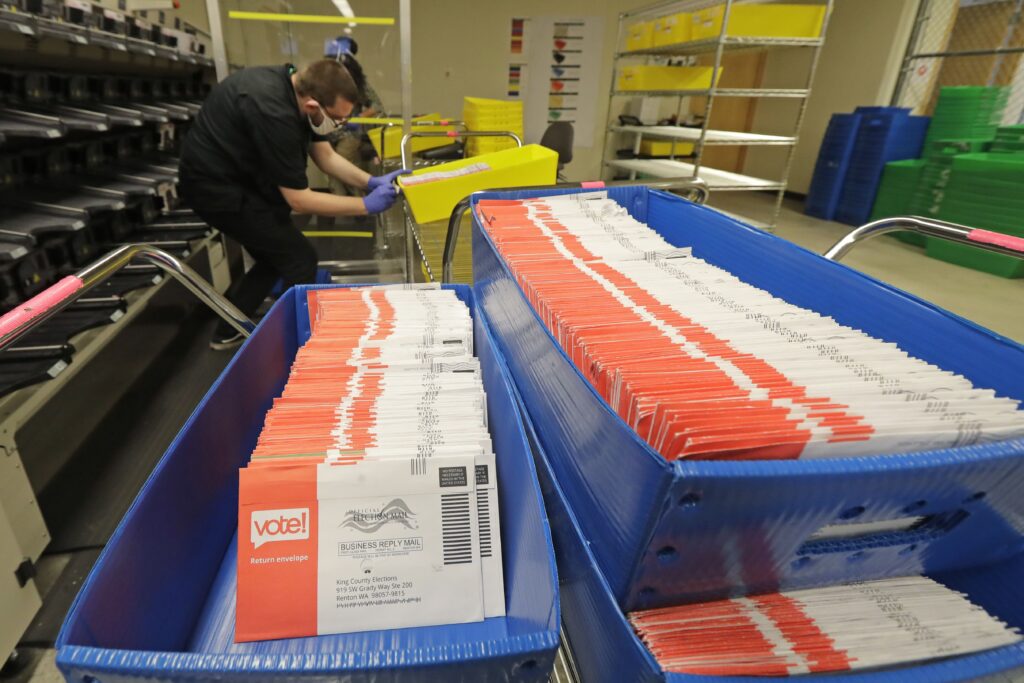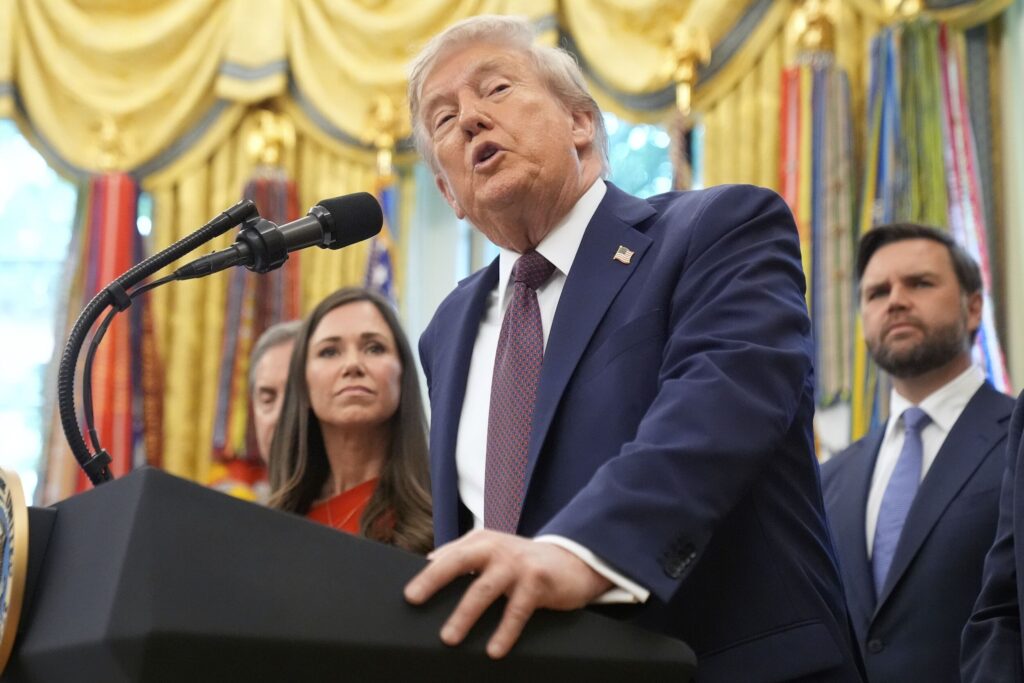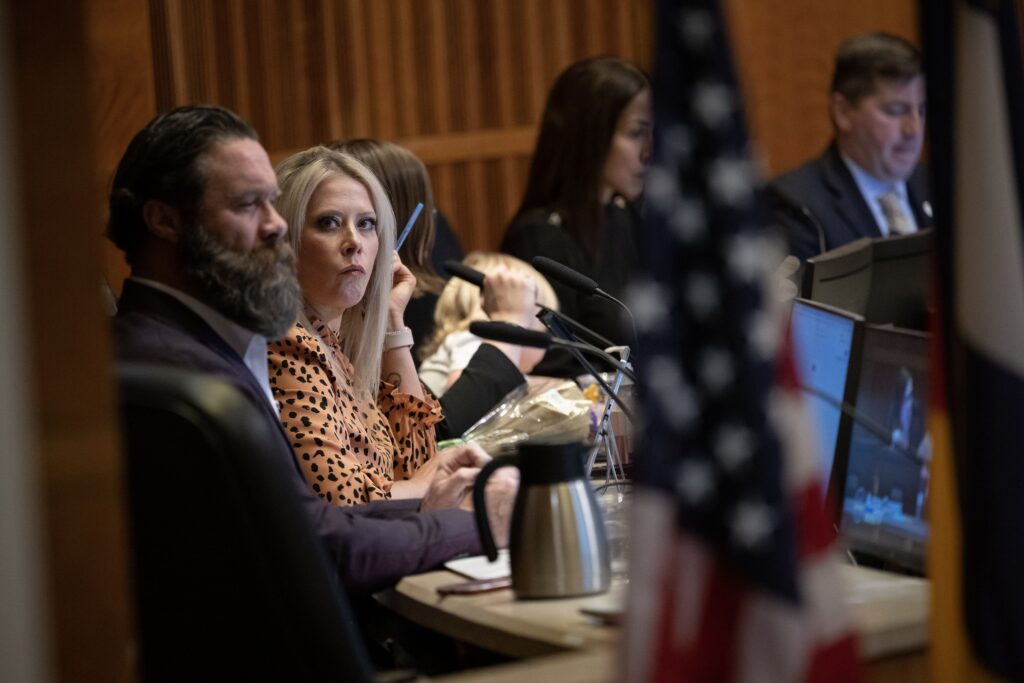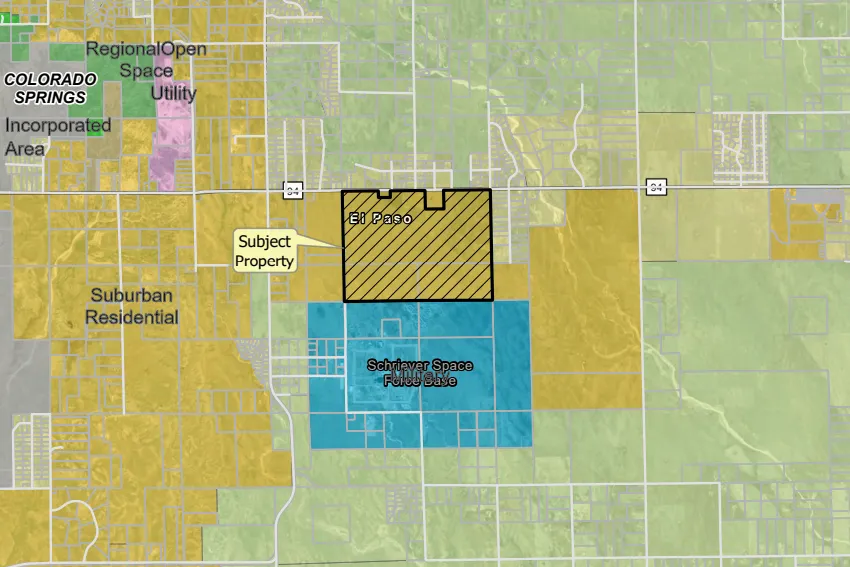Denver King Soopers workers vote to strike; more likely across Front Range

UFCW Local 7 member Carol McMillan gives remarks to the press during a rally calling for a stop to the merger between Kroger and Albertsons outside the Denver City and County Building on Monday, Sept. 30, 2024. After the merger failed, the union's contract with King Soopers expired and the union is threatening a strike for a better deal. (Stephen Swofford, Denver Gazette)
Stephen Swofford/Denver Gazette
Grocery workers in the metro Denver area wrapped up voting Thursday night and voted to strike against King Soopers after negotiations came to a standstill between union leaders and the grocer.
The conference rooms where votes were held had standing room only, according to a union representative.
On Friday, Colorado Springs workers will vote. Pueblo workers will make their decision Saturday.
With the recent votes, union leaders have the green light to launch another strike against King Soopers. But it could potentially be larger than the King Soopers strike in 2022 that totaled more than 8,000 workers and only covered metro Denver area stores.
About 95% of Denver metro workers in the meat department voted to strike against the grocer, as did 96% within the retail unit.
With more votes coming up across the state, it could allow the union to strike in more locations.
“Our membership is very active and they’re pretty upset with the company,” said Union Food and Commercial Workers Local 7 President Kim Cordova on Thursday. “We think that the vote results are going to mirror that.”
If all regions vote to strike, it could affect more than 10,000 workers in King Soopers and City Market stores spanning the Front Range from Pueblo to Boulder as contracts are expiring at the same time.
The previous strike lasting nine days in 2022 didn’t include workers from Colorado Springs and other parts of the state as union contracts for other regions were negotiated under different timelines. The Denver metro area contract that ended the 2022 strike was originally set to expire Jan. 5 but the United Food and Commercial Workers Local 7 and the grocer’s parent company Kroger agreed on an extension until Jan. 16, which ended without a deal.
The delayed timing lined up with several other regional contracts expiring along the Front Range.
“We’re in a little different position than we were last time,” Cordova said about the number of more expired contracts compared to 2022.
Cordova did not say when picketing would begin if the majority of union members vote in favor of it. Union leaders said they will let members know when and where they’ll strike once it’s authorized.
King Soopers officials said in a statement Friday morning it plans to stay open for business and will hire temporary workers to keep doors open during the time of a strike.
“While we respect our associates’ rights to participate in a work stoppage, any associate who chooses to continue to work is welcome,” said Joe Kelley, President of King Soopers, in a statement. “We believe our associates would be better served if the Union worked with us to reach an agreement that would not risk leaving our associates without a paycheck. We remain open to continuing to meet with the Union to reach a resolution.”
A strike lasting as long as 2022’s could potentially happen during Super Bowl Sunday on Feb. 9. Depending on when union leaders choose to strike or how long negotiations take, another holiday could be affected: Valentine’s Day.
The 2022 strike disrupted shopping and an economist who testified in Colorado’s lawsuit against Kroger found Safeway stores gained $55 for every $100 King Soopers lost during the strike.
Cordova said workers are still feeling the brunt of some of the issues from the last strike such as working through the pandemic, high inflation and the Boulder mass shooting in 2021.
This time, the failed merger which the union advocated to bring an end to added pressure. Cordova said that grocery workers feel like the grocer invested more in the merger than its workers – leading to staffing issues across stores and problems with getting accurate prices shown in store and products on the shelves.
Kelley said in a statement on Jan. 17 that he hopes the union would take the grocer’s “last, best and final offer” to their members for a vote.
“We know that nobody wins in a strike — strikes bring uncertainty and financial hardship, and we don’t want that for our people, our customers, or our communities,” he stated.
Its final offer included raising hourly wages $4.25 over the next four years, or approximately $1 more each year, for top associate positions. Health care benefits would cost workers $1 to $3 more each week, depending on the plan, which King Soopers maintains it’s staying “low-cost.”
Union leaders said the proposal only offers concessions on wages and benefits and it leaves thousands of workers not in top associate positions without sufficient wage increases.
King Soopers officials retorted that its offer “maintains affordable health care and stable pension contributions while addressing rising costs to ensure long-term benefit security for all associates,” in a worker’s guide for rebutting the union’s claims.
Cordova retorted that the strike vote is the vote against their offer.
“Based on the energy in the rooms, based on what we know from our own members, the strike votes are gonna say something different,” she said.











